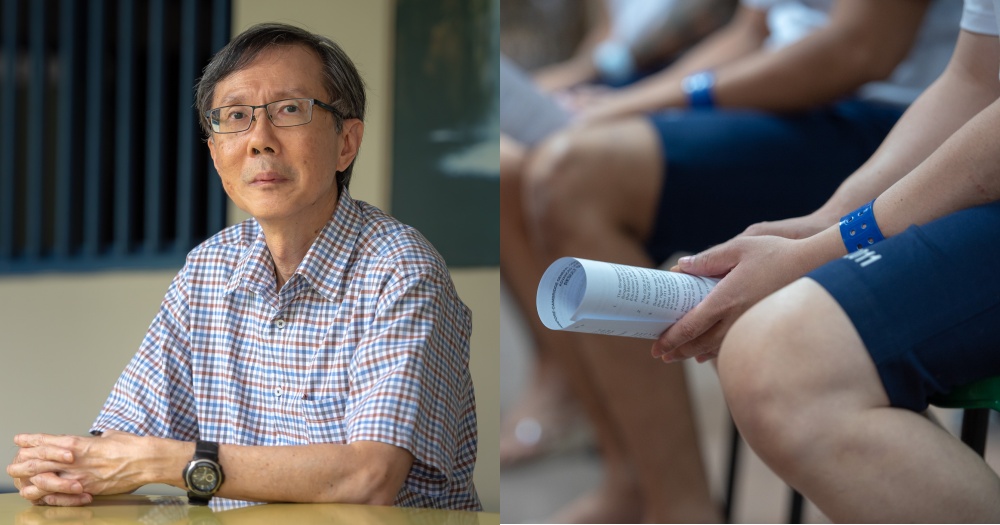PERSPECTIVE: Lee Chee Khuen, 60, has been an MOE teacher since 1987. In 2009, he chanced upon a job opening for an A-level Principles of Accounting (POA) teaching position in prison.
Since then, he has never looked back. Lee has been teaching N, O and A-level POA, as well as H1 and H2 Economics to inmate students.
The A-level inmate students received their results on Feb. 19. Three of them qualified to apply for polytechnic, private degree courses and full-time local university courses.
Speaking to Mothership, Lee shares with us his experiences at Tanah Merah Prison School and explains what the prison school system is like.
As told to Syahindah Ishak
I've been teaching for over 30 years.
I previously taught accountings in a Junior College (JC) and a secondary school.
Things changed in 2009 when I saw a job opening in prison school.
I thought to myself that it would be meaningful to educate the students behind bars.
And I soon found it to be an enriching experience to be part of their rehabilitation journey as they work hard for their exams, and to also see them turn over a new leaf.
It's not an experience that I can get anywhere else.
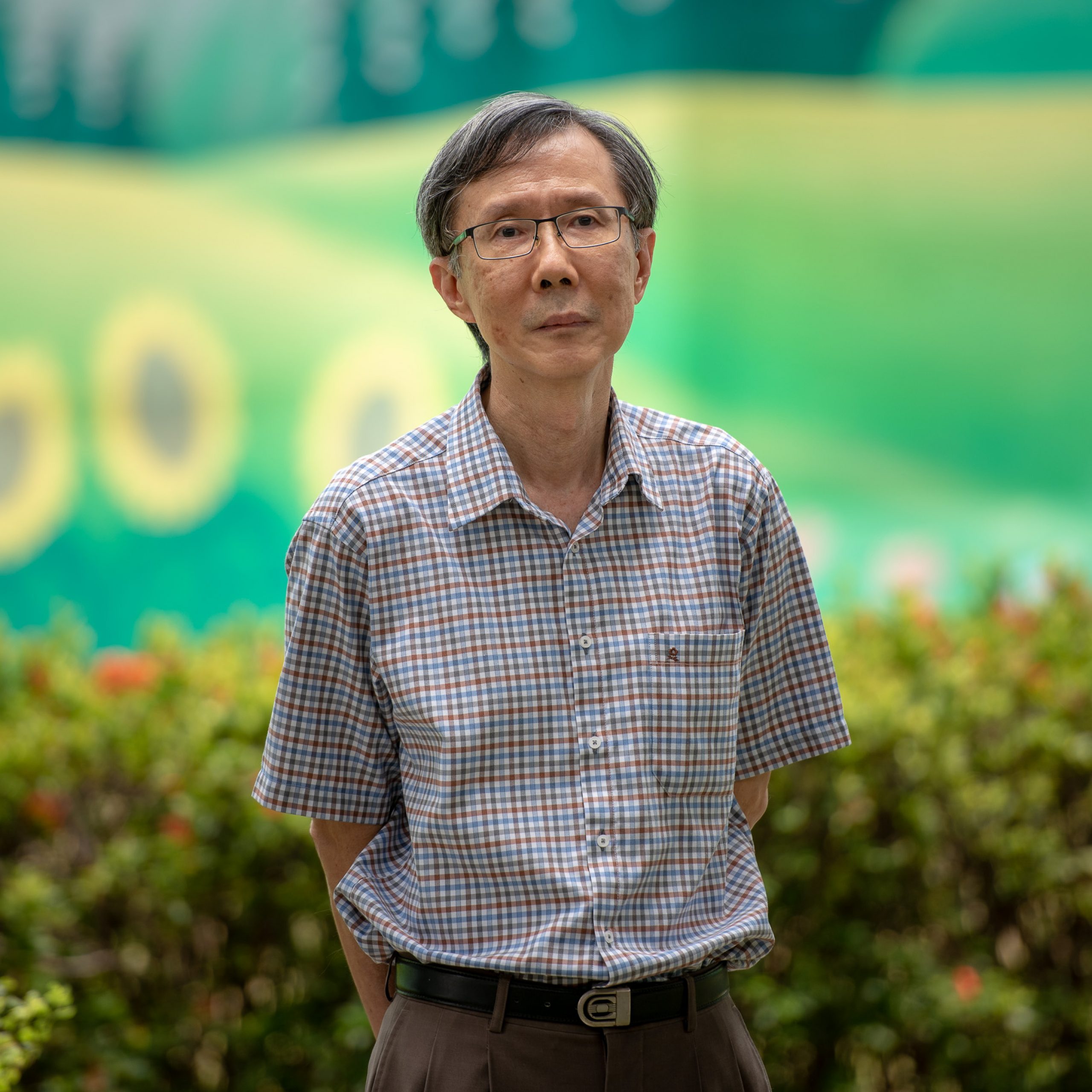 Photo of Lee, courtesy of Singapore Prison Service.
Photo of Lee, courtesy of Singapore Prison Service.
What is the prison school system like?
Basically it’s very similar to mainstream schools.
The normal school hours in prison are more or less the same. We start at 8:30am and end in the afternoon. One period is around 45 minutes, and each class has about 25 students.
We have normal classrooms, with whiteboards and projectors.
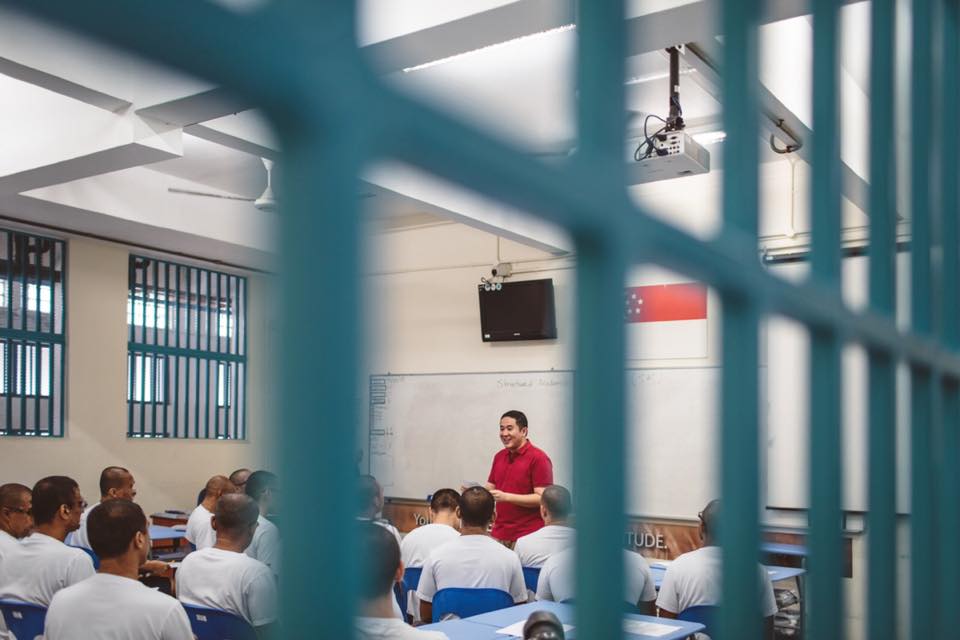 Photo of a classroom at Tanah Merah Prison School, taken from Amrin Amin's Facebook page.
Photo of a classroom at Tanah Merah Prison School, taken from Amrin Amin's Facebook page.
The students take the same national exams as their mainstream school counterparts.
They are given textbooks and notes that they can use to study after school hours.
They also have co-curricular activities (CCAs), such as the guitar club, keyboard club, reading club, and more. This is to provide a more holistic education, just like in mainstream schools.
And in terms of curriculum and teaching materials for teachers, they are largely similar too.
Teachers require the same qualifications to teach in prison — you must have gone through NIE (National Institute of Education), and teach the subject area that you are specialised in.
When we're not teaching a class, we prepare our lessons in the staff room, or look after the CCA we're in charge of.
What are some differences between prison school and a mainstream school?
Firstly, the age range in prison school varies from as young as 18 to over 60.
The curriculum is also more compressed. The students have to go through everything in one year.
For those taking O-levels, this means that they will have to go through Secondary 3 and 4 in one year.
Similarly, for those taking A-levels, they will go through JC1 and JC2 in one year.
There's also tighter security in prison school. Occasionally, prison guards will patrol along the corridor outside of the classrooms.
And teachers are not allowed to bring things in and out of the prison easily. Like a thumb drive, for example.
We also do not cover all the subjects that are offered in mainstream schools for security purposes. For instance, prison school does not offer Chemistry as a subject as it requires certain chemicals and laboratory apparatus.
But we do offer Physics and Biology. There's a science lab in the prison for those subjects.
Teaching students of different ages within a short time sounds tough. How challenging is it for you?
We have more than 10 full-time teachers in prison seconded from MOE. But we are also supported by part-time and volunteer teachers.
As prison teachers, what we need to do is to compress our content and make it easy to digest so that the students are able to understand.
We also do scaffolding for them to catch up.
(Editor's note: Scaffolding is a technique where teachers provide successive levels of temporary support to help students reach higher levels of understanding that they would not be able to achieve without assistance. As a student masters a skill, the teacher will gradually remove the support.)
The students are differentiated. Before entering prison school, each inmate has to take an entrance exam so that we can put them at the correct level.
The differentiation also continues in their class. Those who are faster are given higher-order questions. And for those who are slower, we will provide more help.
Some of them have never touched a textbook for years, decades even. So there are remedial lessons and extra classes for them.
We also pair them with the ones who are able to grasp concepts faster, so that they can still get help from others when they are studying in their free time after classes.
Have you ever experienced any troubles or unpleasant situations in prison school?
So far, I haven't encountered any unpleasant situations.
However, if anything were to happen, the teachers have a button we can press to call for assistance from the prison officers.
But I never had to press that button because the students are generally well-behaved. They also tend to take responsibility for their actions.
These inmates — they can see whether you are sincere when you teach them. If they feel that you are sincere, they will listen to you and respect you.
The common misconception that people have is that these inmates are not easy to control, and may even be violent at times. This is actually on the contrary.
The inmates are all very motivated in their learning and are disciplined, as long as you give them a nurturing and supportive environment.
In fact, based on what I've observed over the years, I would say that the inmates are more motivated than students from mainstream schools.
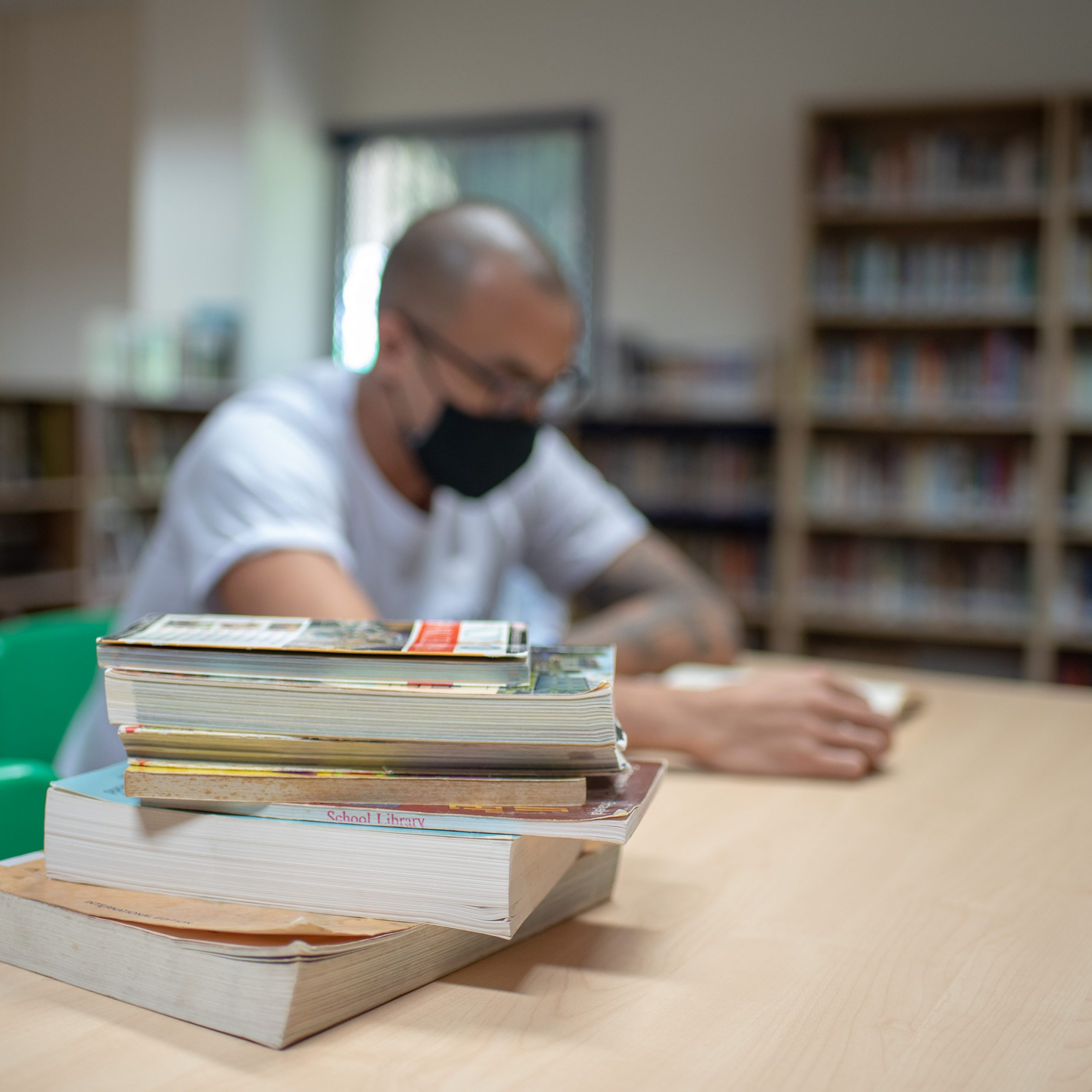 Photo of an inmate studying, courtesy of Singapore Prison Service.
Photo of an inmate studying, courtesy of Singapore Prison Service.
Being in a prison surely affects the inmates' mental health to a certain extent. Did you ever had to offer them any help beyond their academics?
In prison school, we emphasise character and citizenship education.
As I'm also a form teacher, I would spend time with my class to inculcate values in them, such as responsibility, tenacity, and discipline.
But beyond that, all of the students have a personal supervisor, who is a prison officer. The officer's role is similar to a counsellor. For instance, if a student is going through a personal struggle, they will talk to their personal supervisor about it.
And for us teachers, we will work with their supervisor and see how we can help.
Are you aware of each inmates' background and the offences they had committed?
No, no. I was never given any of the students' profiles.
And it's not something that we, as teachers, need to know.
Basically I'm just here to carry out my core duty lah, which is to educate them without having any pre-conceived notions about them.
Can you share more about your experiences and some memorable moments from all the years you've been teaching in prison?
There are so many.
Actually earlier today (Feb. 19), my students received their A-level results.
They are happy with the results and of course, I'm happy too.
Based on the results, three students qualify for polytechnic, private degree courses and full-time local university courses.
The top scorer in prison school is my student. He has achieved 5As and one B.
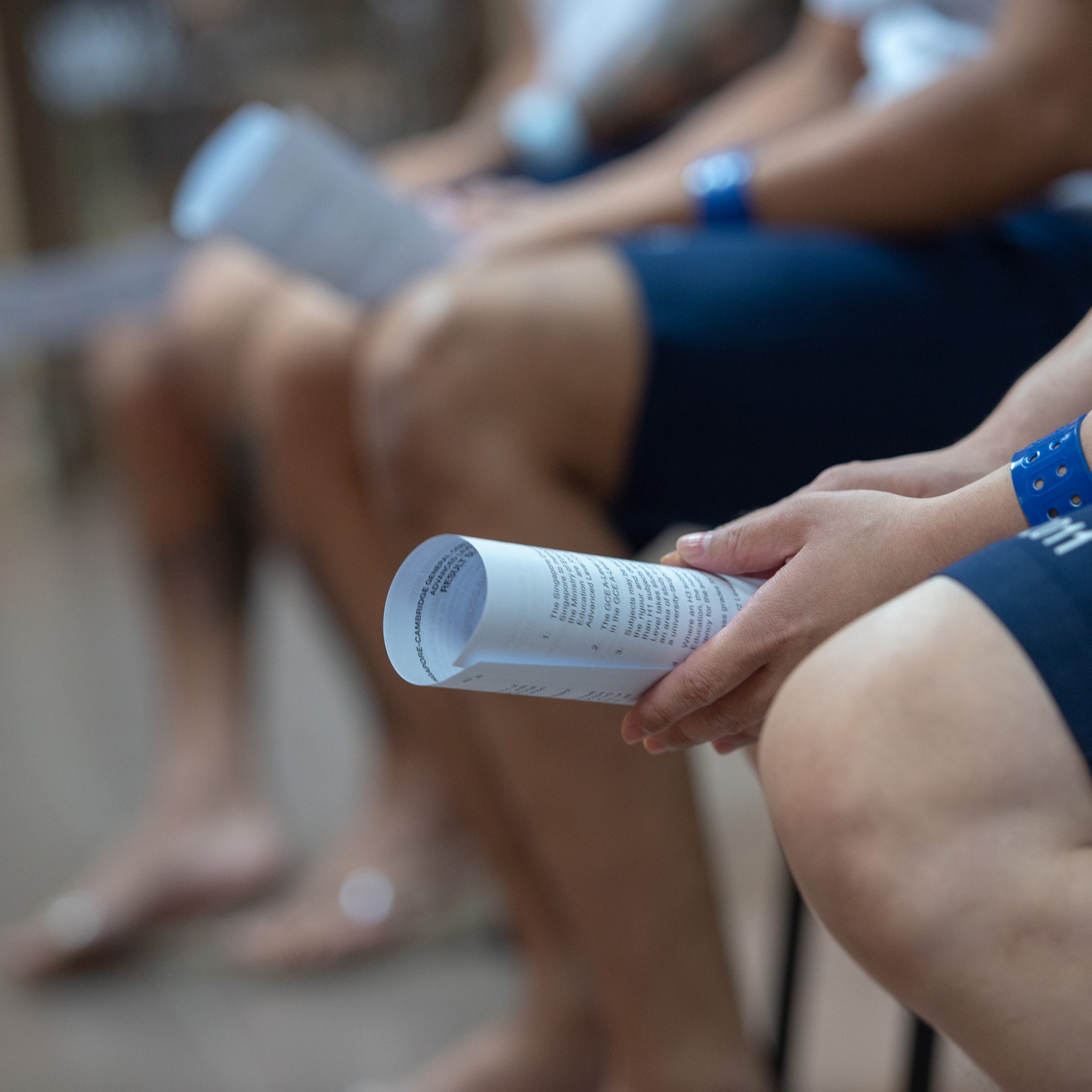 Photo courtesy of Singapore Prison Service.
Photo courtesy of Singapore Prison Service.
Seeing my students succeed is sort of an affirmation for all of my efforts the past few years.
I feel more encouraged. I must have done something correct lah. It's hard to describe the rewarding feeling in words.
The students would also sometimes give me appreciation cards to thank me for teaching them.
These cards are special and mean a lot to me.
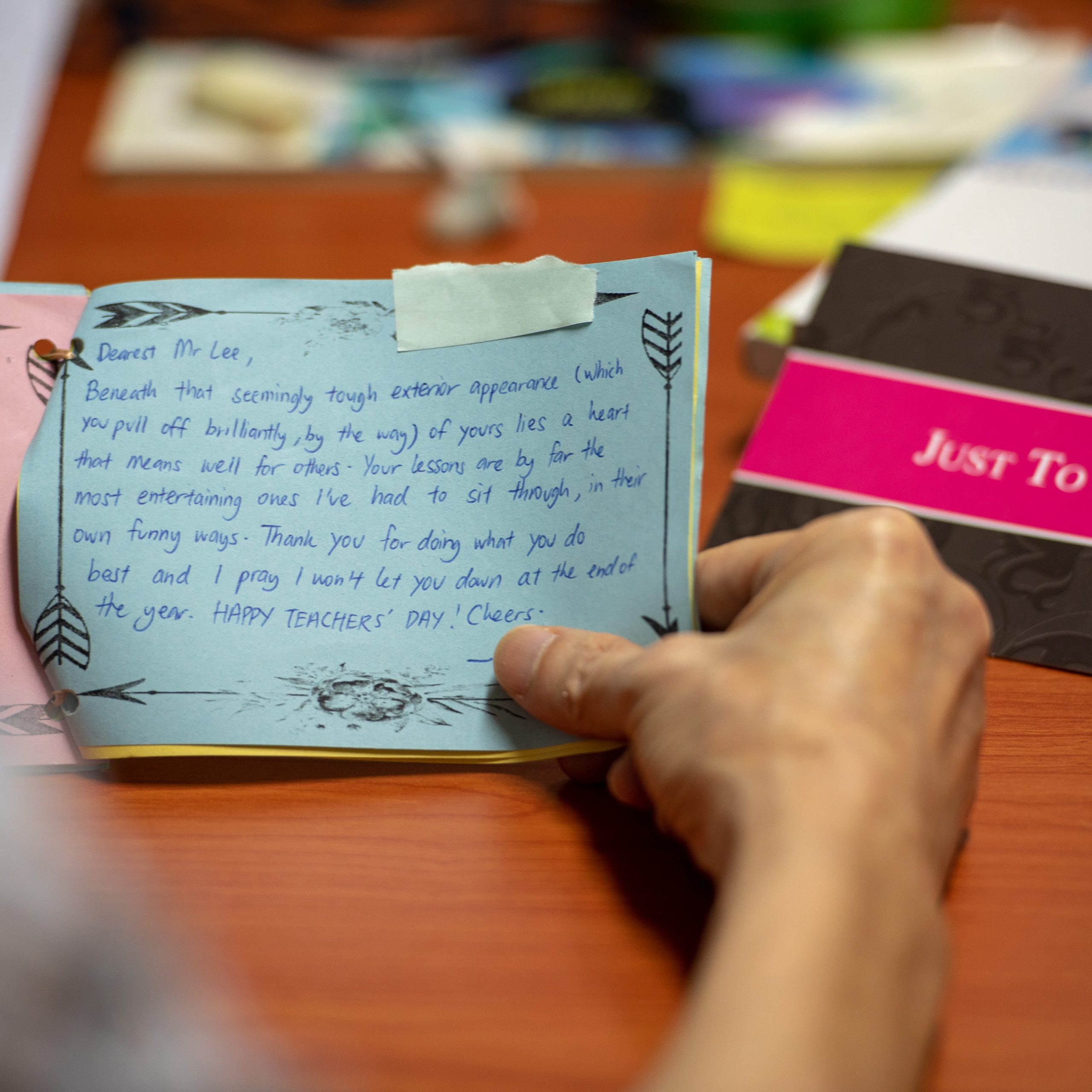 Photo courtesy of Singapore Prison Service.
Photo courtesy of Singapore Prison Service.
But really, my most memorable moments are when I get to witness my students getting released from prison and turning over a new leaf.
Seeing them thrive outside of prison is a feeling that can't be described.
One of my students had left prison and came back to be the guest speaker of a national youth achievement award.
During the ceremony speech, he sort of thanked me for what I've done.
He actually remembered what I told him in class — that he should not feel inferior in any way to students from elite schools because he too, was taking the same national exam as them.
So this spurred him on to work harder and ultimately, he realised his full potential.
That was very touching.
Would you ever go back to teaching in a mainstream school?
No, I would still choose prison school.
Actually, one of my former students from prison school is actually my colleague now.
After getting released from prison, he went to take his degree in a local university. Then he came back to work as a part-time teacher in prison.
When I first saw him back in prison as a teacher, I was really touched because he managed to turn over a new leaf.
And that's not easy, you know? I was very proud... very proud.
He was my A-level student in prison school, and now he's my colleague. He sits opposite me in the staff room. It's really remarkable.
All the success stories in prison school — you just can't get that anywhere else. And that feeling of pride is unique, it keeps me going as a teacher.
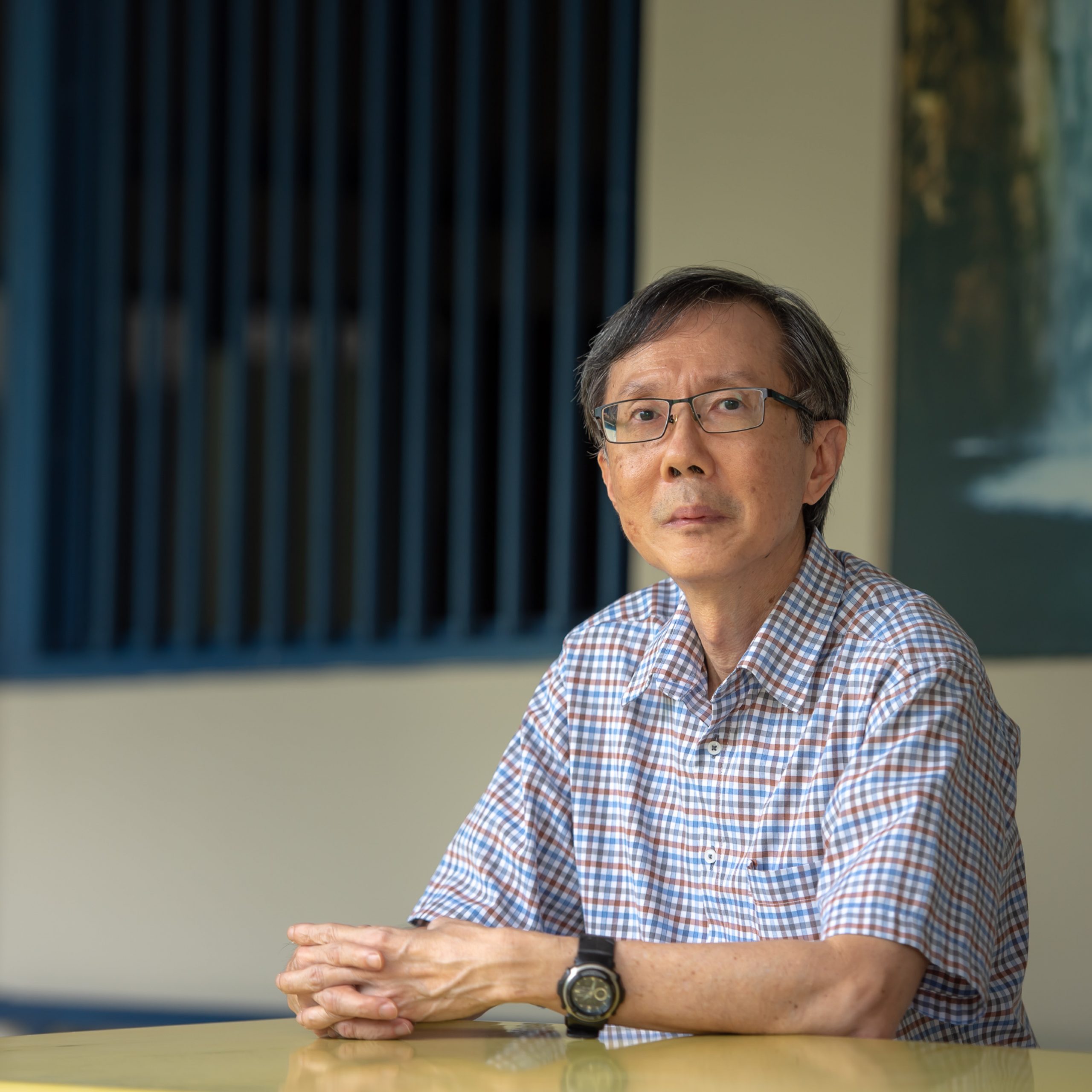 Photo courtesy of Singapore Prison Service.
Photo courtesy of Singapore Prison Service.
Top images courtesy of Singapore Prison Service. Quotes were edited for clarity.
If you like what you read, follow us on Facebook, Instagram, Twitter and Telegram to get the latest updates.
